2016-01-13 12:04:41 来源:新东方在线论坛SAT资料下载
为了方便大家学习,新东方在线为大家准备了SAT考试之作文题目大全,希望能够帮助到正在准备SAT考试的考生。
1. Is there always another explanationor another point of view?
2. Is deception ever justified?
3. Are people motivated to achieve bypersonal satisfaction rather than by money or fame?
4. Do changes that make our lives easiernot necessarily make them better?
5. Is conscience a more powerfulmotivator than money, fame, or power?
6. Can success be disastrous?
7. Do we need other people in order tounderstand ourselves?
8. Is the world changing for the better?
9. Do you think that ease does notchallenge us and that we need adversity to help us discover who we are?
10. Should heroes be defined as peoplewho say what they think when we ourselves lack the courage to say it?
11. Is the way something seems to be notalways the same as it actually is?
12. Are bad choices and good choicesequally likely to have negative consequences?
13. Do people learn who they are onlywhen they are forced into action?
14. Are people’s lives the result of thechoices they make?
15. Do closed doors make us creative?
16. Do people have to be highlycompetitive in order to succeed?
17. Is style more important thansubstance?
18. Can what we value be determined onlyby what we sacrifice?
19. Is perfection something to beadmired or sought after?
20. What makes a person wise? Are thewisest people merely smart or are they also concerned with the well-being ofothers?
21. Is the opinion of the majority—ingovernment or in any other circumstances—a poor guide?
22. Is creativity needed more than everin the world today?
23. Are people better at makingobservations, discoveries, and decisions if they remain neutral and impartial?
24. Is a person responsible, through theexample he or she sets, for the behavior of other people?
25.Do people depend on work—whether itis a job, schoolwork, or volunteer work—to determine what their dailyactivities and interactions with others should be?
26. Does progress depend on people withnew ideas rather than on people whose ideas are based on the current way ofdoing things?
27.Are people afraid to speak outagainst authority, whether the authority is an individual, a group, or agovernment?
28.Does worrying too much about otherpeople’s opinions prevent us from seeing things clearly?
29.Do memories hinder or help people intheir effort to learn from the past and succeed in the present?
30.Do people put too much emphasis onlearning practical skills?
31.Should schools help studentsunderstand moral choices and social issues?
32.Do newspapers, magazines, television,radio, movies, the Internet, and other media determine what is important tomost people?
33.Is success in life earned or dopeople succeed because they are lucky?
34.Is society’s admiration for famouspeople beneficial or harmful?
35.Do we live in a time when people donot engage in serious thinking?
36. Should people make more of an effortto keep some things private?
37.Should our perceptions of beauty beinfluenced by the perceptions of beauty of other people?
38.Is praising others, even if thepraise is excessive or undeserved, a necessary part of life?
39.Is conflict helpful?
40.Has the acquisition of money andpossessions replaced more meaningful ways of measuring our achievements?
41.Are leaders necessarily people whoare most capable of leadership?
42.Is knowledge of the past no longeruseful for us today?
43.Is it necessary to limit or putrestrictions on freedom of thought and expression?
44.Do the benefits of scientific andtechnological developments come at the cost of undesirable changes to people‘slives?
45.Do people accomplish more when theyare allowed to do things in their own way?
46.Is it necessary to make mistakes,even when doing so has negative consequences for other people?
47. Can any obstacle or disadvantage beturned into something good?
48.Are all important discoveries theresult of focusing on one subject?
49.Is it best not to change our ideas,opinions, or behaviors?
50.Is our ability to change ourselvesunlimited, or are there limits on our ability to make important changes in ourlives?
51.What do you think motivates people todo their best?
52.Should each individual decide whatand how to learn?
53. Are we free to make our owndecisions or are we limited in the choices we can make?
54.Would the world be a better place ifeveryone always told the complete truth?
55.Does the success of acommunity—whether it is a class, a team, a family, a nation, or any othergroup—depend upon people’s willingness to limit their personal interests?
56.Does the truth change depending onhow people look at things?
57. Does a strong commitment totechnological progress cause a society to neglect other values, such aseducation and the protection of the environment?
58.Are established rules too limited toguide people in real-life situations?
59.Is it sometimes better to take risksthan to follow a more reasonable course of action?
60.Do we tend to accept the opinions ofothers instead of developing our own independent ideas?
61. Do people achieve more success bycooperation than by competition?
62.Is it important to question the ideasand decisions of people in positions of authority?
63.Does true learning only occur when weexperience difficulties?
64.Can deception—pretending thatsomething is true when it is not—sometimes have good results?
65. Do we put too much value on theideas or actions of individual people?
66.Can books and stories aboutcharacters and events that are not real teach us anything useful?
67.Can people achieve success only if theyaim to be perfect?
68.Do success and happiness depend onthe choices people make rather than on factors beyond their control?
69. Are people more likely to beproductive and successful when they ignore the opinions of others?
70.Is it better for people to berealistic or optimistic?
71.Is it important to try to understandpeople‘s motivations before judging their actions?
72.Is happinesssomething over which people have no control, or can people choose to be happy?
73. Should people take more responsibilityfor solving problems that affect their communities or the nation in general?
74.Is it more important to do work thatone finds fulfilling or work that pays well?
75. Is education primarily the result ofinfluences other than school?
76.Is it better to change one’s attitudethan to change one‘s circumstances?
77.Is it more valuable for people to fitin than to be unique and different?
78.Is it best to have low expectationsand to set goals we are sure of achieving?
79.Do we really benefit from every eventor experience in some way?
80. Should modern society be criticizedfor being materialistic?
81. Can knowledge be a burden ratherthan a benefit?
82. Is it always best to determine one’sown views of right and wrong, or can we benefit from following the crowd?
83.Do circumstances determine whether ornot we should tell the truth?
84.Are people more likely to be happy ifthey focus on goals other than their own happiness?
85.Is there a value in celebratingcertain individuals as heroes?
86.Have modern advancements trulyimproved the quality of people‘s lives?
87.Do people truly benefit from hardshipand misfortune?
88.Is identity something people are bornwith or given, or is it something people create for themselves?
89.Can people ever be truly original?
90.Do people achieve greatness only byfinding out what they are especially good at and developing that attributeabove all else?
91.Should we admire heroes but notcelebrities?
92.Does having a large number of optionsto choose from make people happy?
93.Is it always necessary to find newsolutions to problems?
94.Is the main value of the arts toteach us about the world around us?
95.Is criticism—judging or finding faultwith the ideas and actions of others—essential for personal well-being andsocial progress?
96.Do people need to“unlearn,” or reject, many of their assumptions and ideas?
97.Should people choose one of twoopposing sides of an issue, or is the truth usually found “in themiddle”?
98.Do images and impressions have toomuch of an effect on people?
99.Is the most important purpose oftechnology today different from what it was in the past?
100. Is it always better to be originalthan to imitate or use the ideas of others?
本文关键字: SAT考试之作文题目大全
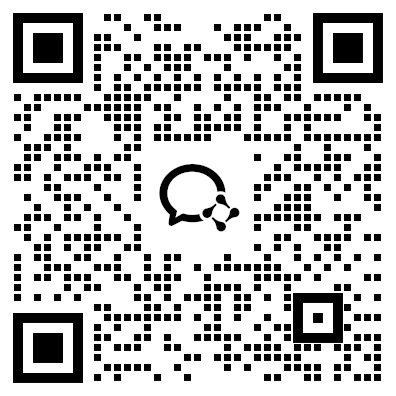
 资料下载
资料下载
【SAT】SAT官方指南题目合集10套
发布时间:2024-04-15添加新东方在线美本助教号
回复【美本资料】获取
SAT阅读+文法+数学专项题型练习册
发布时间:2024-05-31添加新东方在线美本助教号
回复【美本资料】获取
机考SAT-可汗练习题
发布时间:2024-02-29添加新东方在线美本助教号
回复【美本资料】获取
机考SAT-CB官方样题
发布时间:2024-02-29添加新东方在线美本助教号
回复【美本资料】获取
《学科留学百问 (AP-IB-A Level)》
发布时间:2023-02-22添加新东方在线美本助教号
回复【美本资料】获取
2024中国学生留学备考白皮书
发布时间:2023-02-22添加新东方在线美本助教号
回复【美本资料】获取
2023北美考试一本通高中篇
发布时间:2023-02-22添加新东方在线美本助教号
回复【美本资料】获取
新东方SAT阅读讲义
发布时间:2023-02-06添加新东方在线美本助教号
回复【美本资料】获取
2023北美考试一本通高中篇
发布时间:2024-02-29关注美本留学家长帮微信订阅号
回复【美本资料】获取
2024中国学生留学备考白皮书
发布时间:2019-12-19添加新东方在线美本助教号
回复【美本】获取
《学科留学百问 (AP-IB-A Level)》
发布时间:2019-12-19添加新东方在线美本助教号
回复【美本资料】获取
机考SAT-CB官方样题
发布时间:2019-12-19添加新东方在线美本助教号
回复【美本资料】获取
机考SAT-可汗练习题
发布时间:2019-12-19添加新东方在线美本助教号
回复【美本资料】获取
SAT阅读+文法+数学专项题型练习册
发布时间:2019-11-28添加新东方在线美本助教号
回复【美本资料】获取

添加美本助教
即可获取美本资料大礼包

版权及免责声明
1,"新东方在线"上的内容,包括文章、资料、资讯等, 本网注明"稿件来源:新东方在线"的,其版权 均为"新东方在线"或北京新东方迅程网络科技有限公司所有 ,任何公司、媒体、网站或个人未经授权不得转载、链接、转贴或以其他方式使用。已经得到 "新东方在线"许可 的媒体、网站,在使用时必须注明"稿件来源:新东方",违者本网站将依法追究责任。
2, "新东方在线" 未注明"稿件来源:新东方"的 文章、资料、资讯等 均为转载稿,本网站转载出于传递更多信息之目的,并不意味着赞同其观点或证实其内容的真实性。如其他媒体、网站或个人从本网站下载使用,必须保留本网站注明的"稿件来源",并自负版权等法律责任。如擅自篡改为 " 稿件来源:新东方 " ,本网站将依法追究其法律责任。
3,如本网转载稿涉及版权等问题,请作者见稿后在两周内与新东方在线联系。
自动领取备考资料大礼包
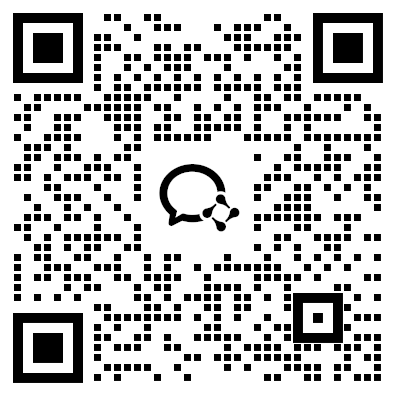
1. 打开手机微信【扫一扫】,识别上方二维码;
2.添加【美本助教】,自动领取留学备考资料大礼包。
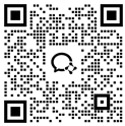
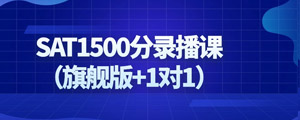 SAT1500分录播课(旗舰版+1对1)
SAT1500分录播课(旗舰版+1对1)
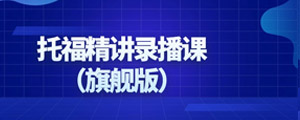 托福精讲录播课(旗舰版)
托福精讲录播课(旗舰版)
 托福8-10人直播VIP小班
托福8-10人直播VIP小班
 公开讲座
公开讲座
真实了解自己的水平,为备考做好规划!
价格 : ¥0元
真实了解自己的水平,为备考做好规划!
价格 : ¥0元
真实了解自己的水平,为备考做好规划!
价格 : ¥0元
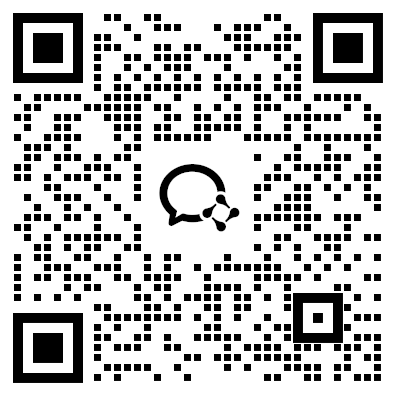
 资料下载
资料下载
添加新东方在线美本助教号
回复【美本资料】获取
添加新东方在线美本助教号
回复【美本资料】获取
添加新东方在线美本助教号
回复【美本资料】获取
添加新东方在线美本助教号
回复【美本资料】获取
添加新东方在线美本助教号
回复【美本资料】获取
添加新东方在线美本助教号
回复【美本资料】获取
添加新东方在线美本助教号
回复【美本资料】获取
添加新东方在线美本助教号
回复【美本资料】获取
关注美本留学家长帮微信订阅号
回复【美本资料】获取
添加新东方在线美本助教号
回复【美本】获取
添加新东方在线美本助教号
回复【美本资料】获取
添加新东方在线美本助教号
回复【美本资料】获取
添加新东方在线美本助教号
回复【美本资料】获取
添加新东方在线美本助教号
回复【美本资料】获取

自动领取备考资料大礼包

1. 打开手机微信【扫一扫】,识别上方二维码;
2.添加【Ella助教】,自动领取留学备考资料大礼包。
关于我们 - 商务合作 - 广告服务 - 代理商区域 - 客服中心 - 在线留言 - 退换货说明 - 合作伙伴 - 联系我们 - 人员招聘 - 网站地图 - 热点关注 - 寓乐优学 - CPS网盟合作
新东方教育科技集团旗下成员公司 全国客服专线:400-676-3300
Copyright © 2000-2016 koolearn.com Inc. All rights reserved. 新东方在线 版权所有
京ICP证050421号 京ICP备05067669号 京公网安备11010802017616号 网络视听许可证0110531号